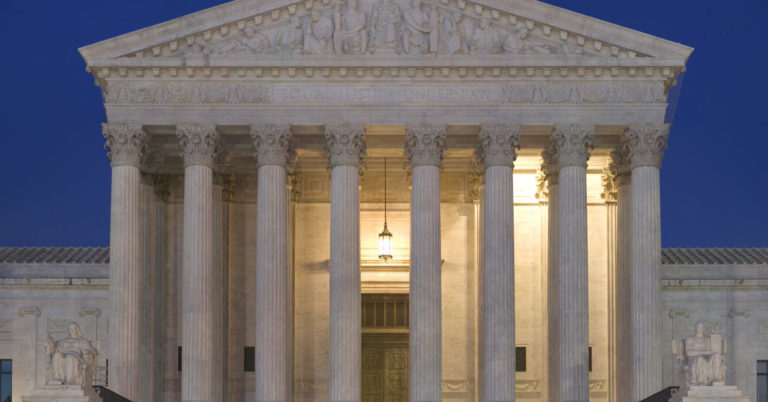
Thanks to the Supreme Court’s March 8, 2021, ruling in Uzuegbunam v. Preczewski, No. 19-968, that a claim for nominal damages is enough to maintain standing, plaintiffs’ ability to seek vindication in court for infringement of speech rights is secure, even where the plaintiff cannot prove monetary harm.
As Casey Mattox and I recently wrote on the Federalist Society blog, the narrow question before the Court has broad ramifications.
Is a request for $1 in nominal damages sufficient to invoke the jurisdiction of federal courts where the plaintiff’s claim is based on a completed violation of a constitutional right? It’s a question that has united civil liberties advocates from the Americans for Prosperity Foundation (where we work) to the ACLU and others ranging from the U.S. Conference of Catholic Bishops to the American Humanist Association.
The Court’s answer? Yes. Plaintiffs who lost their ability to seek an injunction because the government either changed its policy or waited for the facts to change can still get their day in court. In the campus speech context, where students often graduate while their case is pending, the time-is-on-our-side strategy has been particularly effective for rights-infringing state actors.
. . .
The 8-1 ruling shows the value the Court places on the vindication of constitutional rights. Far from the “fight over farthings” lamented in Chief Justice Roberts’ solo dissent, the majority recognized that deciding whether the government has violated its citizens’ fundamental rights is among the most crucial roles of the federal courts.
As we explained following oral argument, nominal damages are particularly important in free speech cases, because First Amendment cases rarely ask for much, if any, compensation. And,
Because Article III standing is not based on the size of the injury, and past harms cannot be remedied by eliminating future harm, it makes no sense to consider a case moot based solely on making a policy change that can only be applied prospectively.
In addition to their importance in the resolution of individual cases, nominal damages are important to the development of caselaw required to overcome the defense of qualified immunity.
Lack of legal precedent on constitutional issues that evade review exacerbates problems created by the doctrine of qualified immunity, which shields abuse by public officials in situations for which no precedent has been developed for similar fact-patterns.
This is especially important in campus speech cases because
Some schools . . . avoid judicial review of oppressive speech policies by mooting claims for equitable relief through strategic modification of policies while a case is pending — essentially, they change their practices to end the case and avoid a ruling. In other cases, schools avoid judicial review by simply waiting for students to graduate.
Thus, the Court’ s holding in Uzuegbunam is likely to have a two-fold impact on free speech cases by both allowing individual plaintiffs to vindicate their own speech rights and in allowing for the development of caselaw necessary to challenging qualified immunity for public officials who curtail speech rights.
Read our full commentary on the The Federalist Society blog, and learn more about Uzuegbunam v. Preczewski by reading further analysis of the case.
© 2026 AMERICANS FOR PROSPERITY. ALL RIGHTS RESERVED. | PRIVACY POLICY
Receive email alerts to learn how to get involved